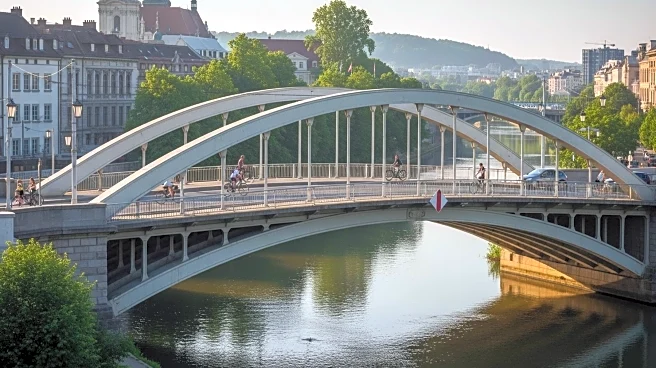What's Happening?
Bristol's Prince Street Bridge, a Grade II-listed swivel bridge, will soon be closed to vehicular traffic as part of a £2.3 million initiative to promote active travel in the city. Currently, the bridge accommodates approximately 24,000 pedestrians and cyclists, alongside 1,700 vehicles daily. The closure to cars is aimed at encouraging sustainable travel, reducing congestion, and supporting Bristol's goal of becoming carbon neutral. The initiative also includes the installation of 20 additional cycle hangars and the creation of traffic-free zones during school pick-up and drop-off times. The funding for these projects comes from the West of England Combined Authority, which received over £4.6 million from the Department of Transport.
Why It's Important?
The closure of Prince Street Bridge to cars is a significant step towards promoting sustainable urban mobility in Bristol. By prioritizing pedestrian and cyclist access, the city aims to reduce traffic congestion and improve public health and wellbeing. This move aligns with broader environmental goals, as reducing vehicle emissions is crucial for achieving carbon neutrality. The initiative also reflects a growing trend in urban planning that emphasizes active travel and public transport over car dependency. This could lead to long-term benefits such as improved air quality, reduced noise pollution, and enhanced quality of life for residents.
What's Next?
As the bridge becomes fully pedestrianized, the city will likely monitor the impact on traffic patterns and public response. The success of this initiative could influence future urban planning decisions, potentially leading to more car-free zones and enhanced infrastructure for cyclists and pedestrians. Stakeholders, including local businesses and residents, may have varying reactions, and their feedback could shape subsequent phases of the project. Additionally, the city may explore further funding opportunities to expand similar initiatives across other areas.









